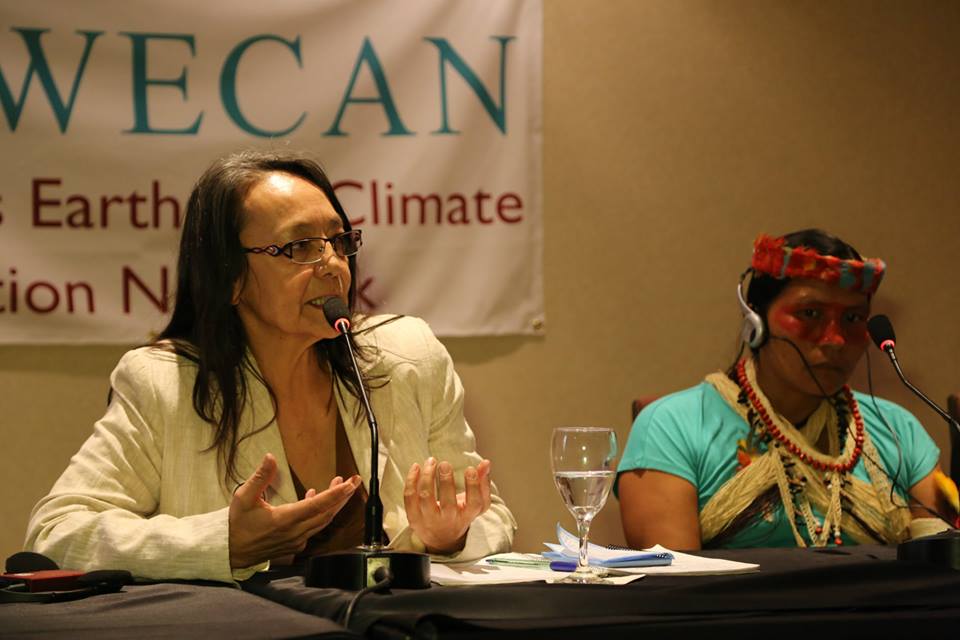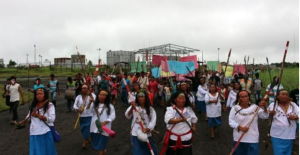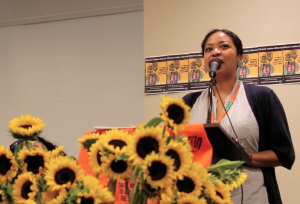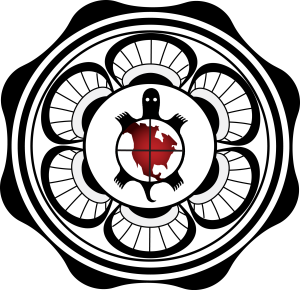We hear from a panel of indigenous women from around the world who met off-site Monday to share their solutions to climate change. The event, hosted by the Women’s Earth and Climate Action Network, featured indigenous women leaders on the front lines of defending the Earth from exploitation by fossil fuel companies.
ALICIA CAHUIYA ITECA: [translated] The Huaorani people lived in a better way in the past. Our water, our environment was clean. Now, with the oil companies that are working in our areas, they have ruined everything. They have polluted the rivers. The children’s skins are affected. They have different skin diseases. We cannot fish like we used to in the past in the rivers. We ate healthy fish, and now the fish is polluted. We just have a little bit of territory left for the future generations to not suffer the way we have. We have to continue fighting for those territories. That is the only thing we have left. If we didn’t fight—if we don’t fight for our territory like our ancestors did, then we wouldn’t be here speaking at this meeting.
LEILA SALAZAR-LOPEZ: Tantoo Cardinal, Native Canadian, from the tar sands region of Canada.
TANTOO CARDINAL: The government knew what was under the land in 1860. They knew that oil was there in 1860. So they took their time, and it was a long, long process. A part of that process—and this is not just for the tar sands, but for all resources, for taking us off the land—is that the children were taken away. And it was the law. If you didn’t give your children up, then you could go to jail, and your kids would be taken anyways. Some people hid their children. So, our ways, our traditions were kept underground, in secret. So, for generations, our language was outlawed. Our songs were outlawed. Our way of relationship with creator, with creative force, was outlawed. Our names were taken away.




